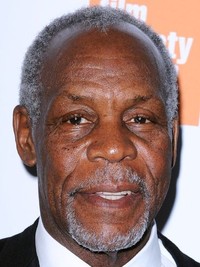Danny Glover

A talented actor with a specialty in projecting gravitas, warmth and menace in equal amounts, depending on the role, Danny Glover enjoyed stardom in the 1980s and 1990s with the "Lethal Weapon" (1987) series and other mainstream titles before settling into steady work as a character player in numerous independent films and television series while also honing an award-winning second career as a documentary and feature producer. Born Danny Lebern Glover on July 22, 1946 in San Francisco, California, he was the son of postal workers who were also active in civil rights through the National Association for the Advancement of Colored People. His involvement in acting began as a student at San Francisco State University, where he appeared in a play by Amiri Baraka; after leaving the school in the late 1960s, Glover worked for the City of San Francisco as a evaluations specialist before returning to acting in the 1970s. He received his dramatic training through the Black Actors' Workshop at the American Conservatory and with Jean Shelton's Shelton Actors Lab before making his screen debut as an inmate in Don Siegel's "Escape from Alcatraz" (1979). He worked steadily on stage - most notably in the Drama Desk-winning Broadway run of Athol Fugard's "Master Harold and the Boys" in 1982 - and in character roles on television and in features before earning critical praise as a sympathetic handyman in Robert Benton's "Places in the Heart" (1984). He followed this with a menacing turn as a corrupt police detective in Peter Weir's "Witness" (1985), which underscored his versatility and command of the screen, and he soon settled into a string of substantive character parts in major features like the abusive Mr. Johnsonn in Stephen Spielberg's "The Color Purple" (1985) and a heroic cowboy in Lawrence Kasdan's "Silverado" (1985). In 1987, Glover settled comfortably into leading man and action hero status as Detective Roger Murtagh, the reluctant partner of loose cannon cop Mel Gibson in Richard Donner's "Lethal Weapon" (1987); a colossal box office hit, it was followed by three successful sequels between 1989 and 1998, but more importantly, granted Glover the clout to not only carry pictures like the HBO biopic "Mandela" (1987), which earned him an Emmy nomination, and the action-dramas "Bat*21" (1988) and Kasdan's "Grand Canyon" (1991), but produce them. His first effort in this regard was Charles Burnett's "To Sleep With Anger" (1991), a critically praised drama about family conflict that earned him an Independent Spirit Award for Best Actor. As the '90s drew to a close, Glover remained a consistent presence in features, though many of these projects - the Disney comedy "Operation Dumbo Drop" (1995), "Gone Fishin'" (1997) with his "Lethal Weapon" co-star Joe Pesci - paled in comparison to his work as a producer for television features like the historical Western "Buffalo Soldiers" (TNT, 1997) and the civil rights drama "Freedom Song" (TNT, 2000), both of which earned multiple Emmy nominations. Glover also devoted considerable energy to civil rights and international causes, including support for Democratic presidential candidate John Edwards and work as a United Nations Goodwill Ambassador. But his acting career continued its busy pace in the new millennium, and he moved effortlessly between independent projects like the horror film "Saw" (2005), guest roles on "ER" (NBC, 1994-2009) and "Brothers and Sisters" (ABC, 2006-2011) and studio projects like "Dreamgirls" (2006). Though his screen time soon trickled down to guest turns in direct-to-video features like "Bad Ass 2: Bad Asses" (2014), part of a curiously popular franchise of action films built around star Danny Trejo as a vengeful senior citizen, his work as producer continued to embrace timely and politically charged subjects, like the aftermath of Hurricane Katrina in "Trouble the Water" (2008) and the Thai-made drama "Uncle Boonmee Who Can Recall His Past Lives" (2010), which captured the Palm d'Or at Cannes. In 2018, he made a welcome return to prominence as Robert Redford's bank-robbing partner in "The Old Man and the Gun" and as a telemarketing vet who teaches Lakeith Stanfield how to sell to white people in the critically acclaimed "Sorry to Bother You." The films were just two of nine film appearances he made in that year alone, with at least a dozen more soon to follow.